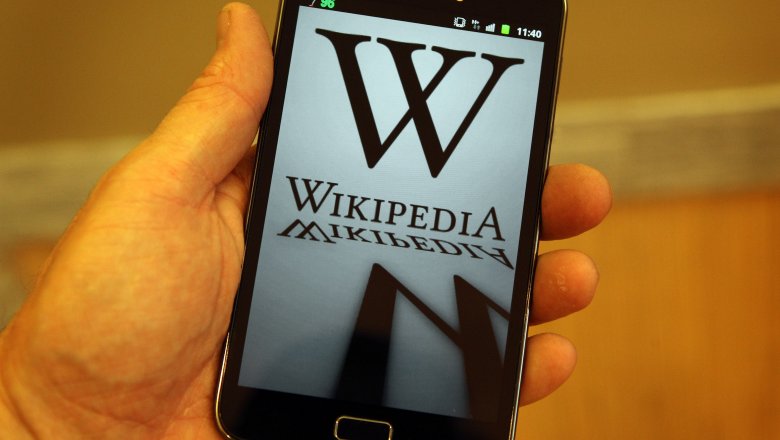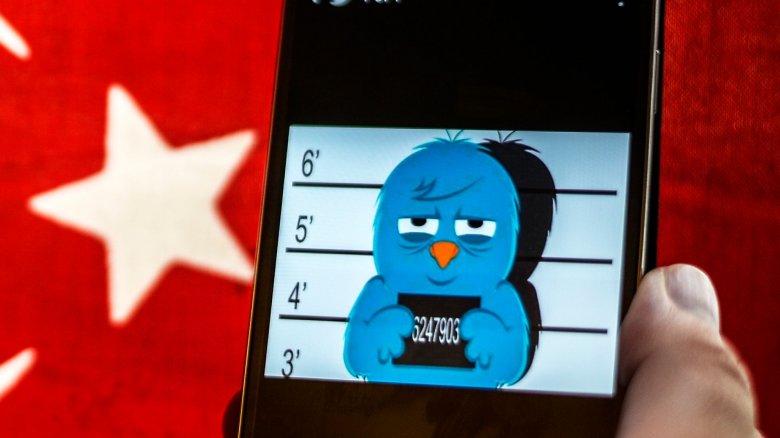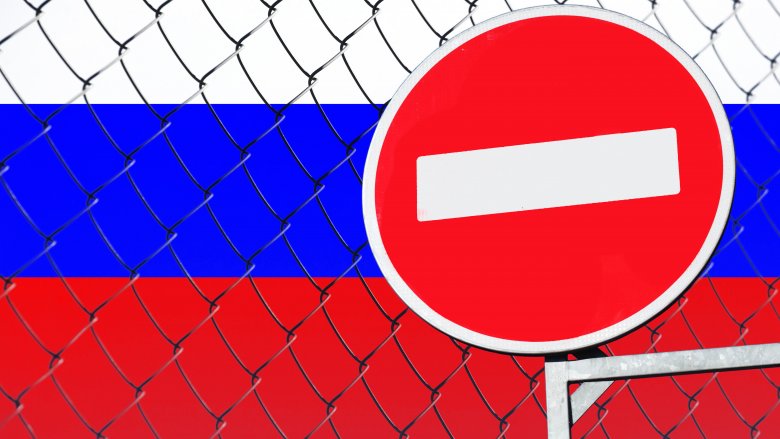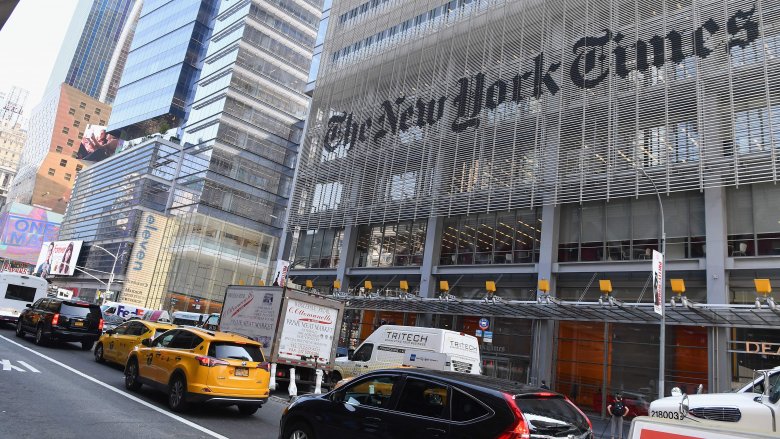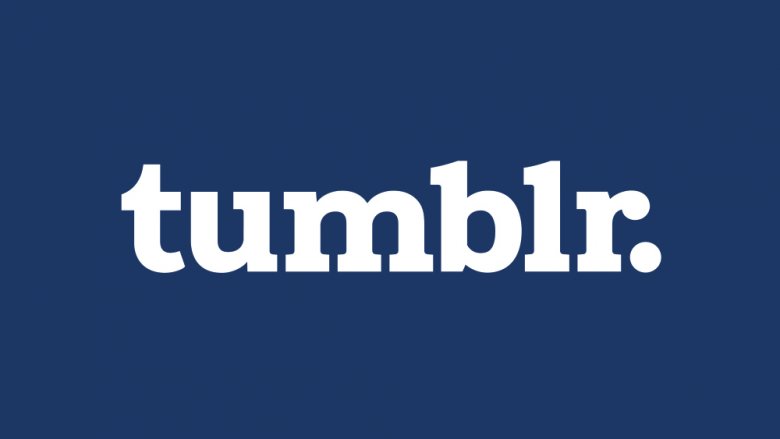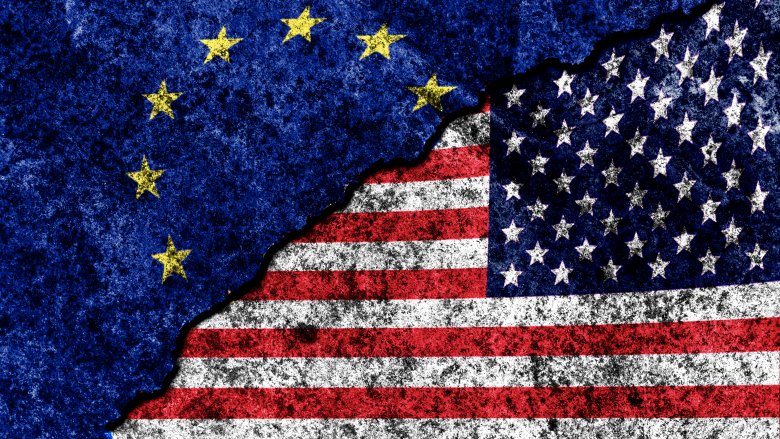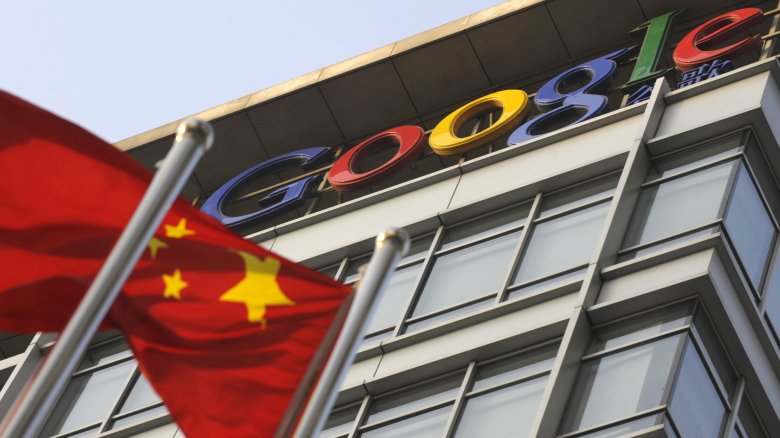Popular Websites That Are Blocked In Other Countries
Information is power, and that's why the internet has changed the world. While propaganda was once an easy tool to steer countless masses to horrible causes, the internet transforms the average person into someone who can theoretically fact-check anything in a few swipes. Thanks to laptops, phones, and tablets, cities are now filled with portable universal pocket encyclopedias, so wherever there is a free internet, there is also nowhere for corrupt corporations, billionaires, or governments to hide, as some of the insane political scandals of the last decade have made clear.
Perhaps overestimating the average person's desire to fact-check political positions or dogmas, some governments around the world have done everything they can to hold back the power of parts of the internet from their citizens, often by blocking some of the most popular websites there are. While people in these countries can potentially find workaround methods to bypass the firewalls, the implications of internet censorship are just as scary as they sound.
Facebook isn't quite everywhere
Mark Zuckerberg really wants to get Facebook unblocked in China, to the point where Quartz says he has been reading Chinese science fiction, meeting with the Chinese president, and even giving long speeches in self-taught Mandarin. But while Zuck has managed some major achievements in his young life, China isn't budging for him (so far). Unfortunately for Mr. Facebook, the world's biggest social networks has been off-limits to the world's most populated country since 2009, according to Investopedia, when Facebook was used to organize people together for the riots in Xinjiang. Hmm, seems a little bit like spilling wine and then blaming the tablecloth for getting stained, eh?
Nobody can accuse Zuckerberg of going down easy, though. On July 24, 2018, Business Insider reported Facebook had gained permission to open a $30 million subsidiary in China, described as an "innovation hub" to support new developers. Great start? Not so fast. Just one day later, Zuckerberg was struck down again, as China's Cyberspace Administration pulled the plug, according to the Verge. Though Zuck hasn't given up, he has acknowledged that his company is "a long time away" from getting into China. Besides, China isn't the only place his website is blocked: According to the Columbia Journalism Review, the famous blue F has also faced temporary bans in Papua New Guinea and Pakistan, and North Korea permanently unfriended the social network in 2016.
Wikipedia's Turkey problem
China gets all the attention, but Turkey is another country that's guilty of routinely blocking access to all kinds of major and important websites. Chief among them? How about Wikipedia, which in April 2018 marked its official one-year anniversary of being banned in Turkey, according to the Verge. While every schoolkid knows you shouldn't cite Wikipedia as a source, it's hard to argue the website's status as one of the most important repositories of information in human history, so blocking the site is some seriously blatant government censorship. Though the official reason given for the Wikipedia ban was that the website refused to remove statements that were "supporting terror," the Washington Post suggested the actual motive was probably to hide Turkish President Recep Tayyip Erdogan's Wikipedia page from public viewing, which contains some not-so-glowing critiques.
As you might imagine, Turkey isn't the first country to block the world's favorite encyclopedia, as Wikipedia's own "Censorship of Wikipedia" page can attest. Back in China, Quartz reported in 2017 that the Chinese government was creating their own state-owned digital encyclopedia, written only by carefully selected scholars.
Tweety bird ain't chirping in Iran, China or North Korea
Twitter has overtaken popular culture in a way the website's founders probably never could have imagined, and even though some particularly loud and obnoxious chirpers might infuriate a large percentage of the population, most people agree on the importance of allowing Twitter to continue squeaking on. It's good for democracy, an expression of freedom, and a convenient way to track cultural trends and fill out news stories that otherwise have very little meat to them. However, not every country allows their citizens to freely spout 280-character thoughts whenever they feel like it. Over in China, Twitter has been blocked for so long that a New York Times piece found that some teenagers don't even know what it is. Weirdly enough, though, the platform has a surprisingly rabid Chinese following, as TechCrunch estimated that Twitter had at least 10 million firewall-dodging followers in the People's Republic in 2016.
The tweeting situation is about the same in Iran, according to the New York Times, where Twitter has also been blocked since 2009, but clever users have figured out a way around it. Global News says the site is also banned in North Korea, though since only a small number of North Koreans actually have internet access, this block primarily impacts visitors. Another country that Twitter has longstanding beef with is Turkey, the Verge explains, which has previously blocked Twitter and even accused it of "terrorist propaganda," leading to the website firing back with some rather high-profile lawsuits.
Russia ain't going 'Way Back' anymore
There's no big award for "Coolest Website Ever," but if there were, the Internet Archive might get the gold medal. Better known as the Wayback Machine, this website is the closest humankind has ever gotten to time travel, as it allows you to transport back to any month, of any year, and see all the crappy old HTML coding and garish spinning gifs from that "Power Rangers Rule!" site you maintained until 1996.
...well, unless you live in Russia. According to Gizmodo, the Kremlin blocked the Internet Archive in 2015, apparently because of one tiny paragraph on one tiny page that suggested implementing sharia law across the world. Basically, since they couldn't ban the one page, they banned everything. Kind of like throwing away an entire carton because of one egg, no? However, this isn't the first time the Russian government has engaged in severe web censorship, considering they've also banned memes like "Sad Putin," according to the Washington Post.
The New York Times wants to break through the Great Firewall
There are very few newspapers on the planet with the history, reputation, and popularity of the New York Times. For decades, though, the newspaper has waged a long, tireless struggle against China's censorship laws. As explained by (of course) the New York Times, the English-language version of the website was blocked in China back in 2001 — then, after a meeting with the Chinese president, made accessible again for the next decade. Following this, in 2012, a Chinese version of the website was opened up to the public. After immense, immediate success, one of the site's social media accounts was blocked by the authorities. Four months later, a piece detailing the finances of China's outgoing premier hit the website — and suddenly, both the Chinese and the American versions of the paper were blocked from Chinese users. The landlords who owned the Chinese office space refused to renew the license, and a New York Times app was never accepted in Chinese Android stores. Despite these barriers, the newspaper company has continued inching its way across the wall, by marketing lifestyle sites, newsletters, and more.
India vs. vice
Listen, whether you're a billion dollar corporation or a government, do yourself a favor and don't fight against the existence of the porn industry. Like it or not, people always find a way to watch their favorite videos. If you resist, you're going to lose. Case in point: India. Like the world's most annoyingly overprotective babysitter, India blocked over 827 adult websites in 2018, according to the Times of India, an action which drew the ire of people who'd already paid their subscription fees. Not surprisingly, this whole thing also created a hashtag, #pornban, with users pointing out that the action violated the country's laws. And no, while you might think that the ban would've involved blocking the darkest, seediest corners of the internet, instead, India just banned the biggest, most popular sites.
Don't count on this ban sticking, though. As Quartz explains, not only is this not the first time India's gone to war with sticky flicks — they tried this before in 2015 — but it's pretty much impossible to stop grown adults from getting their jollies off, since there's just so much material out there.
No Netflix binges for you!
Netflix has altered the world, and not just because it took down Blockbuster and overthrew the television industry in one big stride, or the fact that it's behind trend-setting shows like Stranger Things. What makes Netflix so huge is that everyone, anywhere in the world, is given the ability to stream a seemingly limitless array of programs ... unless you live in Syria, China, North Korea, or the Ukrainian peninsula of Crimea.
According to Vox, the three countries (and one territory) above were the only ones left out of Netflix's big expansion in 2016, but not by Netflix's choice. Though the company claims to be exploring options for getting into China, according to their website, they are being held back because of the usual complex entanglements required by the Chinese government, which make it quite difficult for foreign media companies to create streaming services. As for the other two countries, they are blocked by U.S. sanctions, which is the same issue that prevents people in Crimea from streaming Orange is the New Black.
Tumblr isn't tumbl-ing in Indonesia
If social networks are like people, Tumblr is the quirky cousin who has always been something of an outsider, but is a lot cooler than most of the family realizes. Nonetheless, Indonesia certainly isn't cuddling up to the company. In 2018, the Independent reported that the popular blogging website had been barred from Indonesian users for the terrible sin of ... um, having adult content. Right. Anyone who has spent more than five minutes on Tumblr can tell you it's not intended as an explicit site so much as a platform for free expression, which is why Tumblr has traditionally taken a pretty liberal stance toward adult material. Nonetheless, Tumblr was just one of 70,000 sites banned for allowing so-called "negative content."
Given the news in late 2018 that Tumblr has banned all NSFW material (much to users' chagrin), it will be interesting to see if Indonesia eventually softens on the matter. Indonesia isn't the only country that's anti-Tumblr, of course. The website is also blocked in China and Kazakhstan.
YouTube is banned in China (but still gets visited ... a lot)
Chalk YouTube up as yet another insanely popular website that's banned in China but still gets massive levels of traffic from Chinese users, to the point where some sources rank the video platform as the 11th most visited site in the People's Republic. Clearly, the Great Firewall has some cracks, but you knew that already. Such is the nature of the world wide web.
Some of the other countries that aren't so fond of YouTube are North Korea (which blocked the site in 2016, according to Global News, and threatens punishment under North Korean law for anyone who violates the ban) and Iran, which blocked YouTube in 2012 after the release of an inflammatory anti-Islam video which was posted on the site, as reported by CNN, even though YouTube itself had nothing to do with the movie. In the past, YouTube has faced bans by many other countries, including Indonesia, Turkey, and Bangladesh.
The battle between the E.U. and American news, explained
Buckle your seatbelt, because here's a weird one.
Considering the (usually) friendly relations between the United States and the European Union, it's hard to imagine either one trying to block content from the other. As of 2018, though, Fortune reports that some of the biggest U.S. news sources out there are no longer available to European internet users. How big? Try the Los Angeles Times, Newsday, Chicago Tribune, New York Daily News...
Say whaaa? As it happens, you can blame the U.S. media companies for this one. A few years ago, the E.U. established new rules, set by the General Data Protection Regulation, requiring all websites to clearly notify users about what personal data their sites are collecting, to ask for consent in doing so, and to give users the ability to delete their personal data if they wish. Companies were given two years to get on board, and some of the more major websites like the New York Times and the Washington Post signed up right away. Other companies didn't, though, and for the time being, they've become unavailable for European consumption.
Skype or expensive long-distance calling?
Oddly enough, some of the wealthiest countries in the Middle East — like Qatar, the United Arab Emirates, and previously Saudi Arabia — seem to have problems with VoIP services, from total blockages to crazily limited bandwidth problems. These internet calling programs, which you know by names like Skype, WhatsApp, and FaceTime, have made long-distance calling easier and cheaper for millions of people across the globe ... and actually, that very cheapness is the main reason these services have been stalling out in these countries.
According to ZDNet, the governments in some of these countries have a vested interest in preventing free VoIP services from taking off because such programs severely damage the market for expensive international calls. These major telecom companies don't want to lose that big money. Consider that in Qatar, for example, only 12 percent of the population is native to Qatar, so that's a lot of outbound calls. The leading shareholder for many of these big telecom agencies is, of course, the national government. As demand for these services continues to grow, though, the outcry is also getting louder and steps are being taken. According to the National, for instance, Microsoft is working diligently with the UAE authorities to get that particular Skype ban wiped away.
The great Google quandary
Listen, kids. There actually was an internet before Google was born, hard as it may be to believe today. If you're in China, though, the world's biggest search engine, email provider, and cloud service is (officially, at least) unavailable for your use, since Google and China have been fighting over the Great Firewall since way back in 2002. This testy relationship only further soured in 2010, when the Big G redirected Chinese search traffic to its unfiltered Hong Kong wing, according to CNN. This action, which won the tech giant many new fans, was a clear protest against Chinese censorship.
Things seem to have shifted over at Google HQ, though, and in an awfully scary way. In 2018, the Independent reported that Google was possibly developing an alternative version of its search engine that would block any website results that were disliked by the Chinese government, called Project Dragonfly. Considering Google's rep as a champion against censorship, this news has provoked an understandable level of fear and outrage: Google employees have staged protests, according to the Verge, while Amnesty International condemned the project, and research scientist Jack Poulson loudly resigned from the company, going on to point out that some of Dragonfly's blacklisted phrase would include "Nobel prize" and "human rights." Yikes. Only time will tell what happens in the future, but this is probably a good moment in history for Google to remember its old "Don't be evil" motto.


